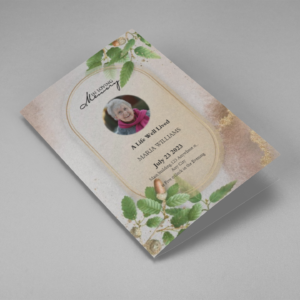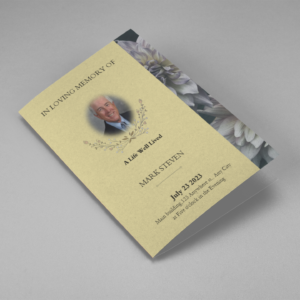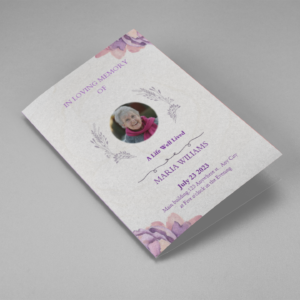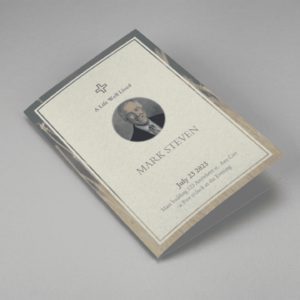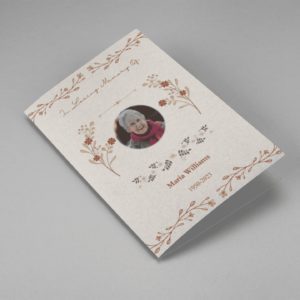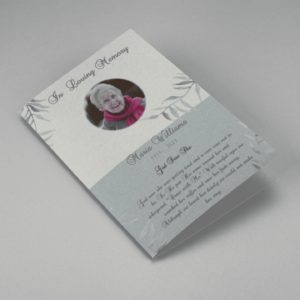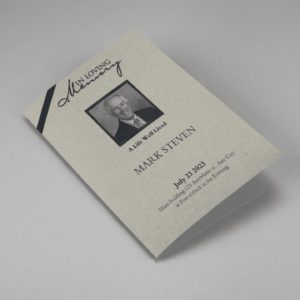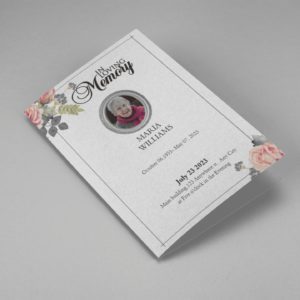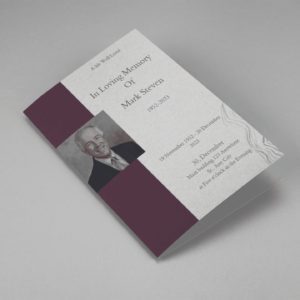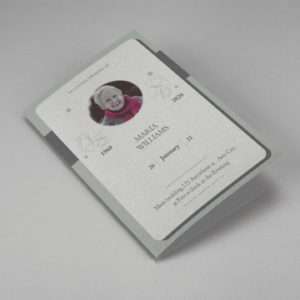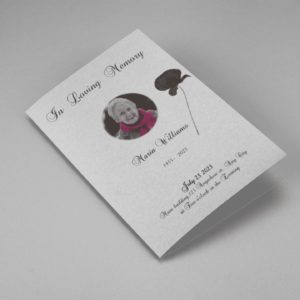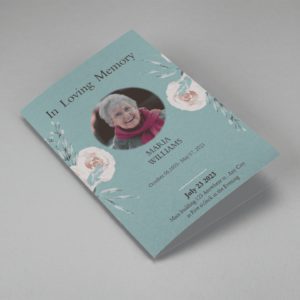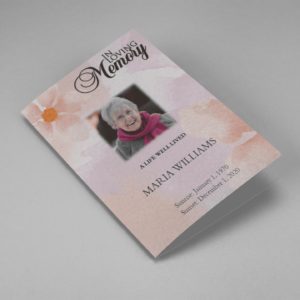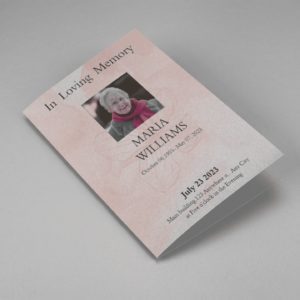Obituary wording examples play a crucial role in capturing the essence of a person’s life in a meaningful and concise manner. These examples provide inspiration and guidance for crafting the right language and tone for an obituary. They showcase different styles, from heartfelt and sentimental to uplifting and celebratory, allowing writers to choose the one that best reflects the individual being honored. Obituary wording examples help convey important details such as the person’s full name, dates of birth and death, and significant life accomplishments. They also serve as a foundation for sharing personal stories and cherished memories and expressing gratitude. With well-crafted obituary wording examples, writers can create a tribute that honors the unique life and legacy of their loved one.
Purpose Of Obituary Wording Example
The purpose of obituary wording examples is multi-fold:
- Inspiration: Obituary wording examples serve as a source of inspiration for those tasked with writing an obituary. They provide ideas and creative approaches for expressing the life and legacy of the deceased.
- Guidance: Examples offer guidance on how to structure and format an obituary. They showcase different sections and provide a framework for organizing information effectively.
- Language and Tone: Wording examples help in selecting appropriate language and tone for the obituary. They offer different styles, from formal to more personal and conversational, aiding writers in finding the right voice to convey their message.
- Personalization: Examples can be customized to reflect the unique qualities and experiences of the deceased. Writers can borrow ideas and adapt them to fit the individual’s personality, achievements, and relationships.
- Clarity and Consistency: Examples help ensure that key details, such as names, dates, and important events, are included in the obituary. They provide a reference point for maintaining clarity and consistency throughout the writing process.
Creation Of Obituary Wording Example
Obituary wording examples are created through a combination of research, storytelling, and careful crafting of language. Here’s an overview of the process:
Research
Writers gather information about the deceased, including their personal background, achievements, interests, and relationships. They may interview family members, friends, and colleagues to gather insights and anecdotes that highlight the person’s life.
Storytelling
Writers aim to create a narrative that captures the essence of the individual’s life. They select key moments, experiences, or attributes that best represent the person and their impact on others. These stories help paint a vivid picture and evoke emotions.
Language and Tone
Writers consider the desired tone and sentiment of the obituary. They may use a combination of formal and informal language, depending on the person being honored and the preferences of the family. The goal is to strike the right balance between respect, warmth, and authenticity.
Editing and Refinement
After drafting the obituary, writers review and revise the wording to ensure clarity, coherence, and sensitivity. They may seek feedback from family members or friends to ensure the obituary accurately reflects the individual’s life and personality.
Personalization
Writers customize the obituary wording examples to suit the specific details and preferences of the family. They adapt the language and content to reflect the unique qualities and experiences of the deceased, ensuring a personalized tribute.
Obituary Wording Examples Templates
-
Searching for a Oak Leaf With Gold Oval Frame Half Page Funeral Program that is easy to print and amass and has a cutting-edge look? The Oak Leaf With Gold Oval Frame Half Page Funeral Program is the Perfect decision because it measures 8.5”x 5.5”.
- No Limitation on Content, Edit anything
- Edit anytime – unlimited revisions even after purchased
- Get a printable PDF downloaded to get it printed on your own.
-
Searching for a Brown and White Classic Funeral Program Half Page Program that is easy to print and amass and has a cutting-edge look? The Brown and White Classic Funeral Program Half Page Program is the Perfect decision because it measures 8.5”x 5.5”.
- No Limitation on Content, Edit anything
- Edit anytime – unlimited revisions even after purchased
- Get a printable PDF downloaded to get it printed on your own.
-
Searching for a Purple Elegant Watercolor Half Page Funeral Program Template that is easy to print and amass and has a cutting-edge look? The Purple Elegant Watercolor Half Page Funeral Program Template is the Perfect decision because it measures 8.5”x 5.5”.
- No Limitation on Content, Edit anything
- Edit anytime – unlimited revisions even after purchased
- Get a printable PDF downloaded to get it printed on your own.
-
Searching for a Cream and Green Photo Obituary Half Page Program that is easy to print and amass and has a cutting-edge look? The Cream and Green Photo Obituary Half Page Program is the Perfect decision because it measures 8.5”x 5.5”.
- No Limitation on Content, Edit anything
- Edit anytime – unlimited revisions even after purchased
- Get a printable PDF downloaded to get it printed on your own.
-
Searching for a Cream Simple Elegant Photo Church Half Page Program that is easy to print and amass and has a cutting-edge look? The Cream Simple Elegant Photo Church Half Page Program is the Perfect decision because it measures 8.5”x 5.5”.
- No Limitation on Content, Edit anything
- Edit anytime – unlimited revisions even after purchased
- Get a printable PDF downloaded to get it printed on your own.
-
Searching for a Samovar Silver Half Page Funeral Program Template that is easy to print and amass and has a cutting-edge look? The Samovar Silver Half Page Funeral Program Template is the Perfect decision because it measures 8.5”x 5.5”.
- No Limitation on Content, Edit anything
- Edit anytime – unlimited revisions even after purchased
- Get a printable PDF downloaded to get it printed on your own.
-
Searching for an Elegant Beige Half Page Funeral Program Template that is easy to print and amass and has a cutting-edge look? The Elegant Beige Half-Page Funeral Program Template is the Perfect decision because it measures 8.5”x 5.5”.
- No Limitation on Content, Edit anything
- Edit anytime – unlimited revisions even after purchased
- Get a printable PDF downloaded to get it printed on your own.
-
Searching for a White Floral Pro Half Page Funeral Program Template that is easy to print and amass and has a cutting-edge look? White Floral Pro Half Page Funeral Program Template is the Perfect decision because it measures 8.5”x 5.5”.
- No Limitation on Content, Edit anything
- Edit anytime – unlimited revisions even after purchased
- Get a printable PDF downloaded to get it printed on your own.
-
Searching for a Grey and Burgundy Elegant Half Page Funeral Program Template that is easy to print and amass and has a cutting-edge look? Grey and Burgundy Elegant Half Page Funeral Program Template is the Perfect decision because it measures 8.5”x 5.5”.
- No Limitation on Content, Edit anything
- Edit anytime – unlimited revisions even after purchased
- Get a printable PDF downloaded to get it printed on your own.
-
Searching for a Soft Green and Grey Minimalist Floral Half Page Funeral Program Template that is easy to print and amass and has a cutting-edge look? Soft Green and Grey Minimalist Floral Half Page Funeral Program Template is the Perfect decision because it measures 8.5”x 5.5”.
- No Limitation on Content, Edit anything
- Edit anytime – unlimited revisions even after purchased
- Get a printable PDF downloaded to get it printed on your own.
-
Searching for a Gray Elegant Oval Frame Half Page Funeral Program Template that is easy to print and amass and has a cutting-edge look? Gray Elegant Oval Frame Half Page Funeral Program Template is the Perfect decision because it measures 8.5”x 5.5”.
- No Limitation on Content, Edit anything
- Edit anytime – unlimited revisions even after purchased
- Get a printable PDF downloaded to get it printed on your own.
-
Searching for a Blue Organic Minimal Half Page Funeral Program Template that is easy to print and amass and has a cutting-edge look? Blue Organic Minimal Half Page Funeral Program Template is the Perfect decision because it measures 8.5”x 5.5”.
- No Limitation on Content, Edit anything
- Edit anytime – unlimited revisions even after purchased
- Get a printable PDF downloaded to get it printed on your own.
-
Searching for a Pink and Orange Watercolour Half Page Funeral Program Template that is easy to print and amass and has a cutting-edge look? Pink and Orange Watercolour Half Page Funeral Program Template is the Perfect decision because it measures 8.5”x 5.5”.
- No Limitation on Content, Edit anything
- Edit anytime – unlimited revisions even after purchased
- Get a printable PDF downloaded to get it printed on your own.
-
Searching for a Pink Floral Paper Half Page Funeral Program Template that is easy to print and amass and has a cutting-edge look? Pink Floral Paper Half Page Funeral Program Template is the Perfect decision because it measures 8.5”x 5.5”.
- No Limitation on Content, Edit anything
- Edit anytime – unlimited revisions even after purchased
- Get a printable PDF downloaded to get it printed on your own.
Obituary Wording Example : Helping Videos
Frequently Asked Questions On Obituary Wording Examples
There are few questions are discussed at time wording obituary examples:
Can I use obituary wording examples as they are, or do I need to customize them?
Obituary wording examples serve as a starting point and source of inspiration. It is recommended to customize them to reflect the unique life and personality of the deceased. Add personal anecdotes, specific achievements, and meaningful details to make the obituary more personal and heartfelt.
Where can I find obituary wording examples?
Obituary wording examples can be found in various sources such as funeral home websites, online obituary archives, or through a simple internet search. You can also look for sample obituaries in newspapers or ask for recommendations from family, friends, or funeral professionals.
Can I mix and match different obituary wording examples?
Absolutely! Feel free to mix and match different wording examples to create a personalized obituary that reflects the unique qualities and experiences of the deceased. You can borrow ideas, phrases, or structures from multiple examples to craft a tribute that resonates with your loved one.
Should I follow a specific format or structure when using obituary wording examples?
Obituary wording examples can provide a general structure for organizing information, but there is no strict format to follow. Adapt the example to fit your needs and preferences, ensuring that essential details like full name, dates, and funeral arrangements are included. Focus on creating a coherent and heartfelt tribute rather than rigidly adhering to a specific structure.
Can I seek assistance from a professional writer or editor to refine the obituary wording?
Yes, if you feel the need for additional help, you can reach out to a professional writer or editor who specializes in obituary writing. They can provide valuable insights, refine the language, and ensure that the obituary accurately reflects the life and legacy of the deceased.


